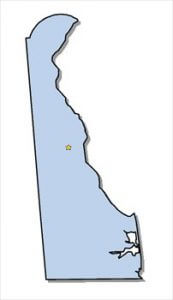Delaware Annual Report & Franchise Tax – Help! Part Five
Posted by Incserv
December 14, 2017
Part Five of our Delaware Annual Report & Franchise Tax Series brings us to the assumed par value method for calculating  Delaware franchise tax. As we previously mentioned, franchise taxes are an annual fee paid to the State of Delaware Division of Corporations for your entity. There are two options for calculating the franchise tax amount due. There is the authorized shares method and the assumed par value method. Entities with a large number of shares carrying a low par value often times opt for the latter method of Delaware franchise tax calculation.
Delaware franchise tax. As we previously mentioned, franchise taxes are an annual fee paid to the State of Delaware Division of Corporations for your entity. There are two options for calculating the franchise tax amount due. There is the authorized shares method and the assumed par value method. Entities with a large number of shares carrying a low par value often times opt for the latter method of Delaware franchise tax calculation.
Per the Delaware Secretary of State Division of Corporations:
To use the assumed par value method to calculate Delaware franchise tax, “you must give figures for all issued shares (including treasury shares) and total gross assets in the spaces provided in your Annual Franchise Tax Report. Total Gross Assets shall be those “total assets” reported on the U.S. Form 1120, Schedule L (Federal Return) relative to the company’s fiscal year ending the calendar year of the report. The tax rate under this method is $350.00 per million or portion of a million. If the assumed par value capital is less than $1,000,000, the tax is calculated by dividing the assumed par value capital by $1,000,000 then multiplying that result by $350.00.”
The example cited below is for a corporation having 1,000,000 shares of stock with a par value of $1.00 and 250,000 shares of stock with a par value of $5.00, gross assets of $1,000,000.00 and issued shares totaling 485,000.
- Divide your total gross assets by your total issued shares carrying to 6 decimal places. The result is your “assumed par”.
Example: $1,000,000 assets, 485,000 issued shares = $2.061856 assumed par. - Multiply the assumed par by the number of authorized shares having a par value of less than the assumed par. Example: $2.061856 assumed par s 1,000,000 shares = $2,061,856.
- Multiply the number of authorized shares with a par value greater than the assumed par by their respective par value.
Example: 250,000 shares s $5.00 par value = $1,250,000 - Add the results of #2 and #3 above. The result is your assumed par value capital.
Example: $2,061,856 plus $1,250,000 = $3,311 956 assumed par value capital. - Figure your tax by dividing the assumed par value capital, rounded up to the next million if it is over $1,000,000, by 1,000,000 and then multiply by $350.00.
Example: 4 x $350.00 = $1,400.00 - The minimum tax for the Assumed Par Value Capital Method of calculation is $350.00.
Be sure to check back next week for the final blog in the Delaware Annual Report & Franchise Tax Series. In the meantime, feel free to reach out to us if you have any questions or need assistance with filing a Delaware annual report or paying Delaware franchise tax. We’re here to help!